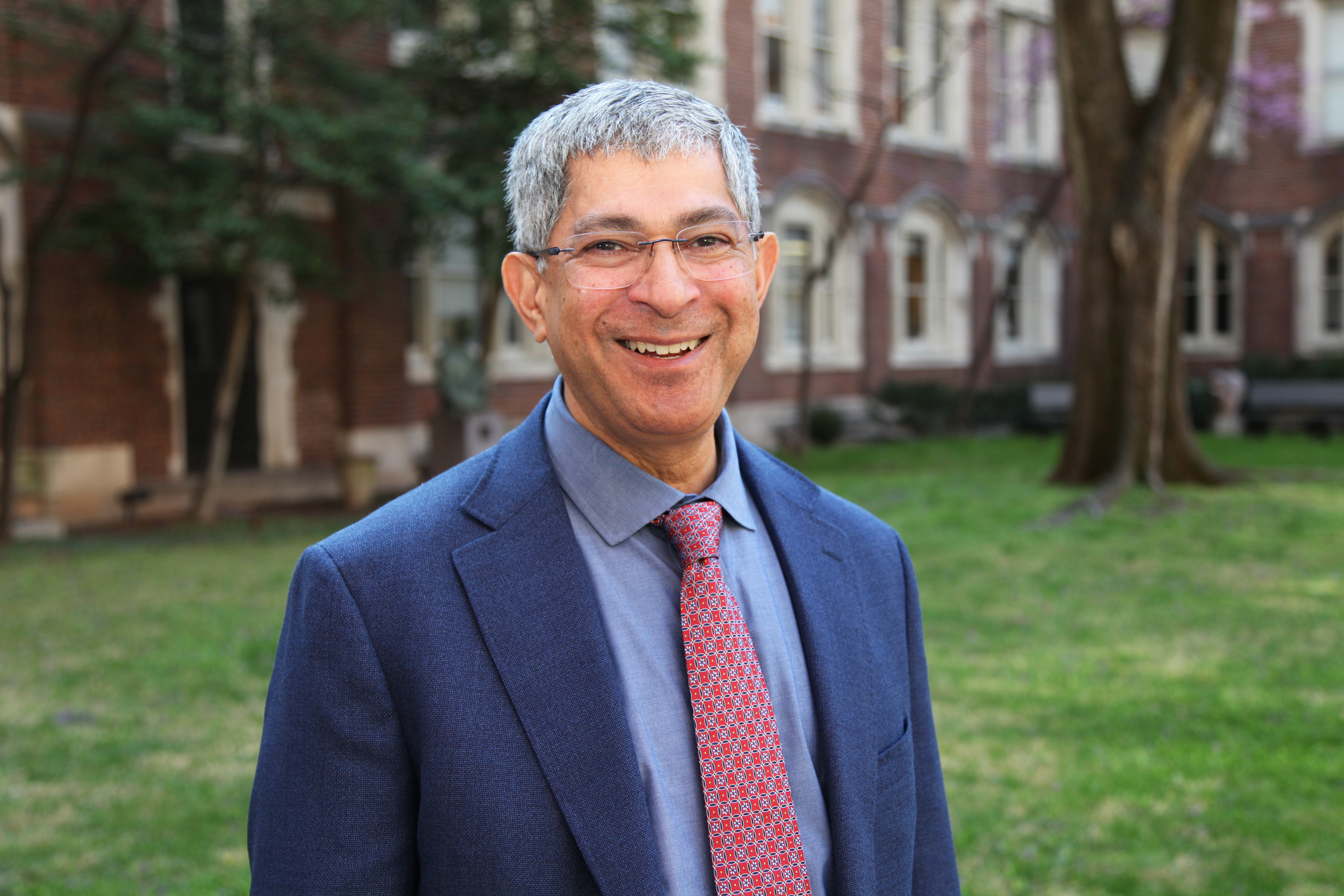
John Kuriyan earned his Ph.D. in 1986 from the Massachusetts Institute of Technology, working under the supervision of Gregory A. Petsko and Martin Karplus (Harvard University). After a brief period of postdoctoral training with Petsko and Karplus, Kuriyan was appointed to the faculty of The Rockefeller University in 1987. He was promoted to full professor at The Rockefeller University in 1993. In 2001 Kuriyan moved to The University of California, Berkeley, where he served as a Distinguished Professor of Molecular and Cell Biology and Chemistry and as an investigator of the Howard Hughes Medical Institute, having been appointed in 1990.
Kuriyan's research concerns the workings of the enzymes and molecular switches that carry out cellular signal transduction and DNA replication. His laboratory determines the three-dimensional structures of proteins, as well as biochemical, biophysical, and cell biological analyses to elucidate how they work. Breakthroughs from his lab have included determining the mechanisms by which several tyrosine kinases, including Src family kinases, the Abl kinase, and the epidermal growth factor receptor, switch on and off. These tyrosine kinases are enzymes that are very important targets of drug development in cancer. Fundamental insights obtained in the Kuriyan lab have been instrumental in understanding how drugs, such as Gleevec (imatinib) and Scemblix (asciminib), both developed by Novartis, are effective in shutting down the leukemia-causing form of the Abl tyrosine kinase. The Kuriyan lab has also provided a fundamental understanding of the structure and regulation of several other signaling proteins, including STATs, the Ras activator SOS, and calcium/calmodulin-dependent protein kinase-II. The group has also made fundamental contributions to understanding the structural basis for high-speed DNA replication.
Kuriyan's achievements in science have been recognized by several honors. He was elected a member of the U.S. National Academy of Sciences in 2001, a member of the American Academy of Arts and Sciences in 2008, a Foreign Member of The Royal Society of London in 2015, and a member of the U.S. National Academy of Medicine in 2018. He was awarded a Doctor of Humane Letters, honoris causa, by his alma mater, Juniata College, Huntington, PA, in 2014. He has also received several prizes, including the Stein and Moore Award and the DuPont-Merck Award of the Protein Society, in 2017 and 1997, respectively, the Merck Award of the American Society of Biochemistry and Molecular Biology in 2009, the Richard Lounsbery Award of the U.S. National Academy of Sciences in 2005, the Cornelius Rhoads Memorial Award of the American Association for Cancer Research in 1999, the Eli Lilly Award of the American Chemical Society in 1998, and the Schering-Plough Award of the American Society of Biochemistry and Molecular Biology in 1994. Kuriyan was a Pew Scholar in the Biomedical Sciences from 1989 to 1993.